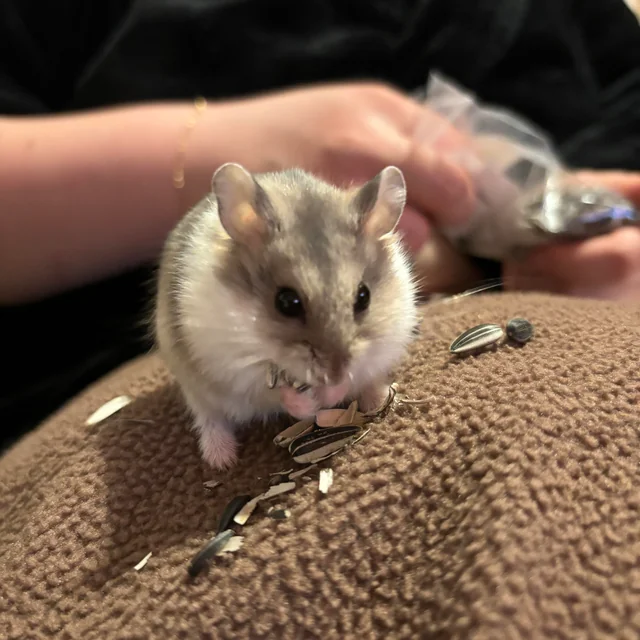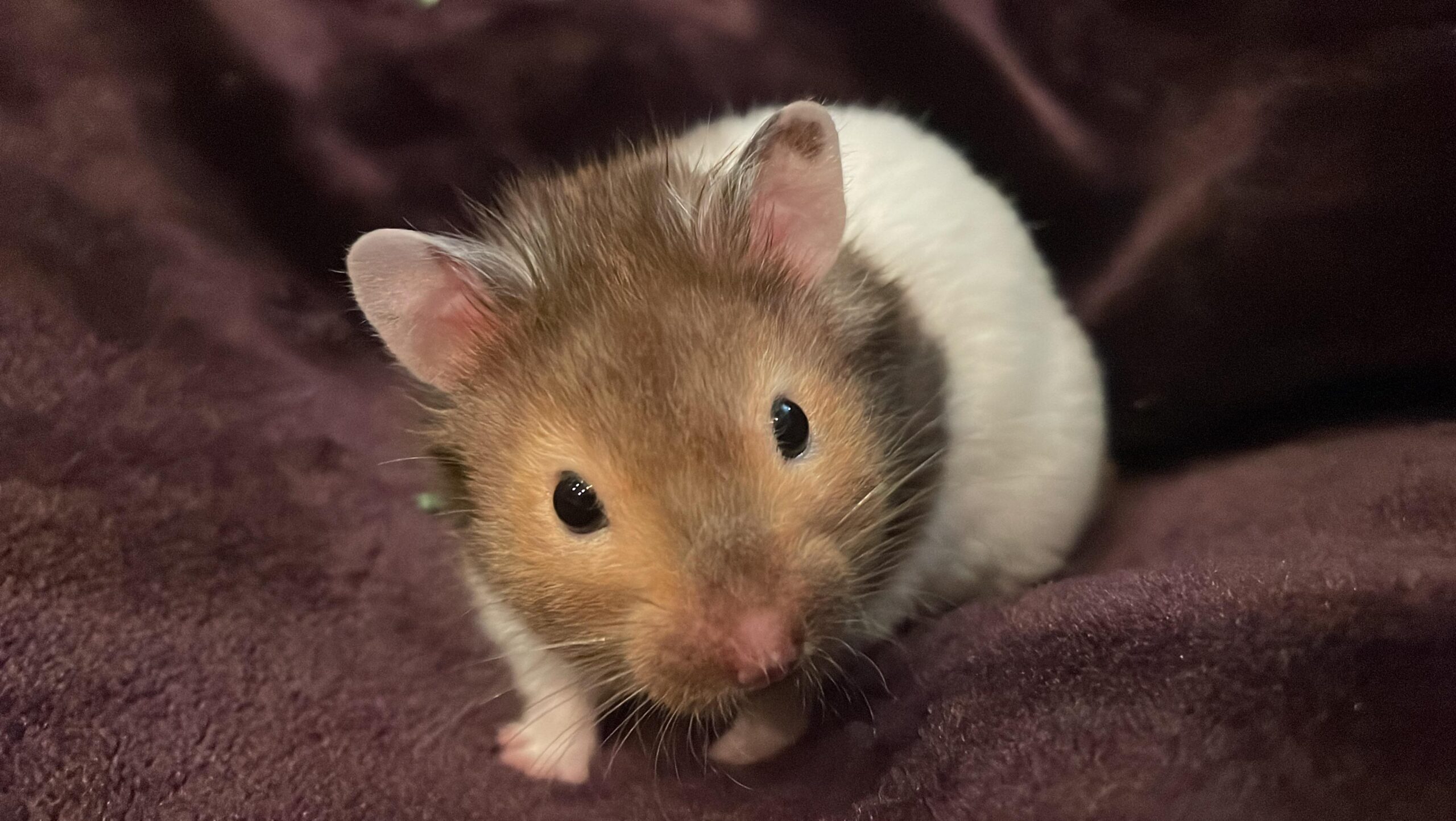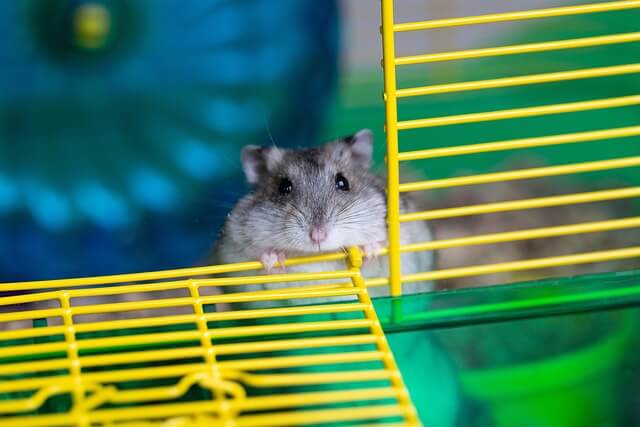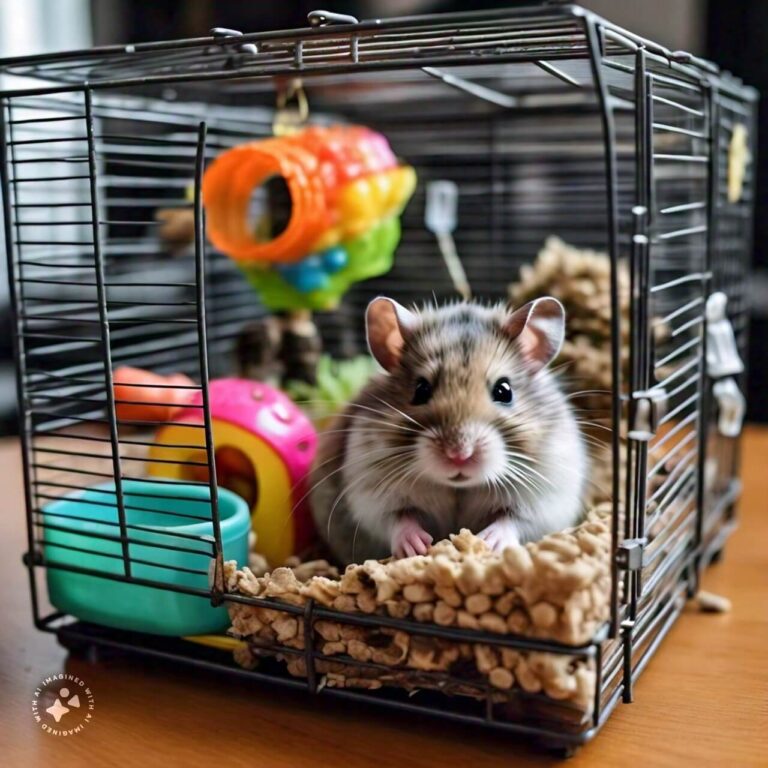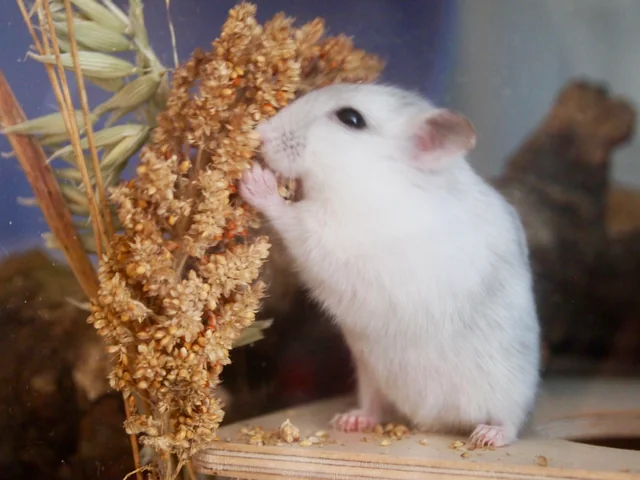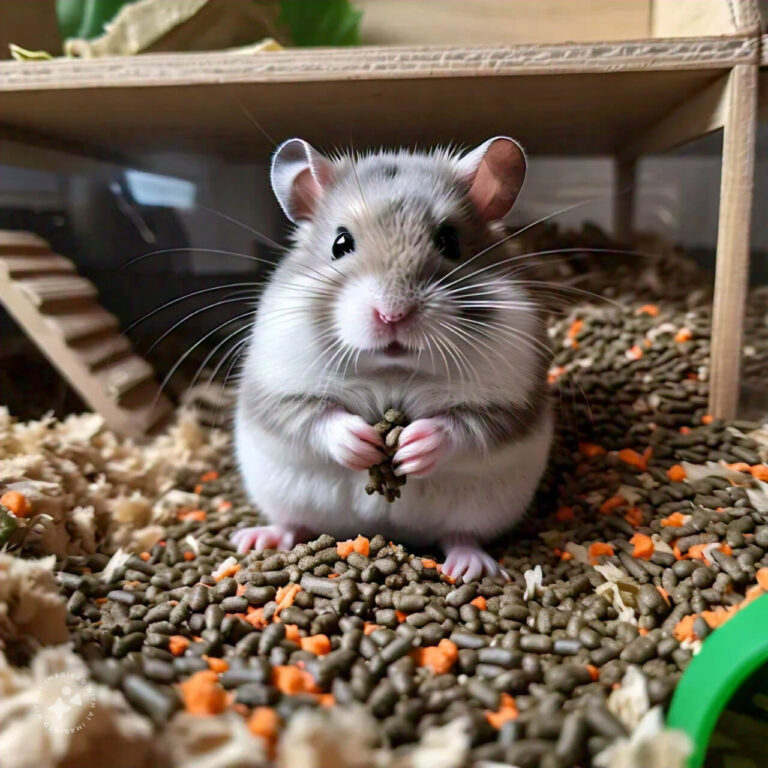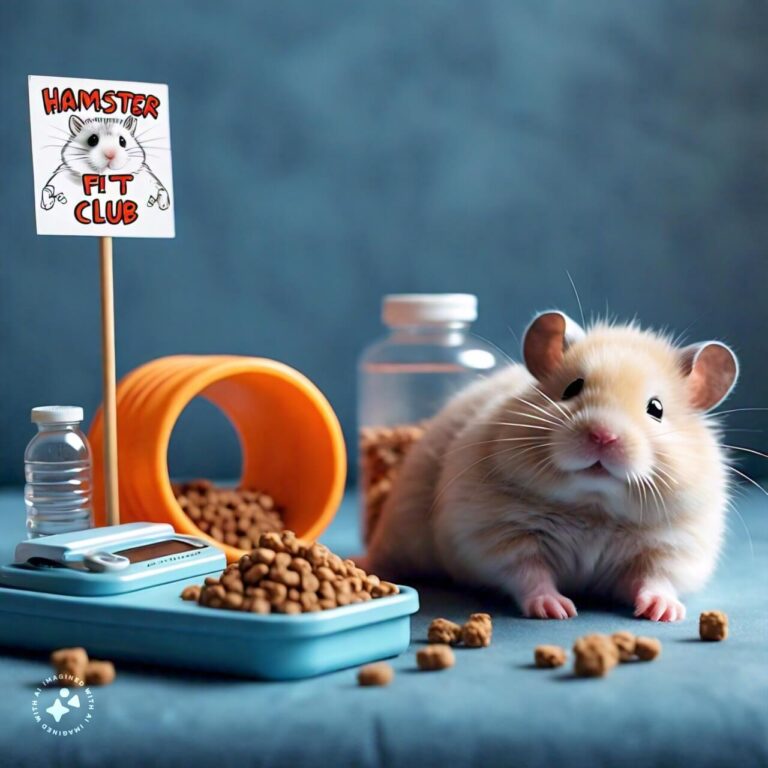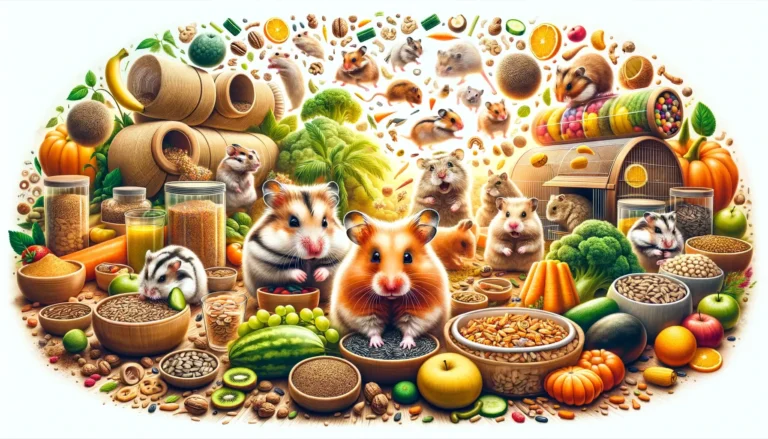What Do Hamsters Need In Their Diet – Hamsters.pk
Essential Nutrients for a Balanced Hamster Diet
As a responsible hamster owner, it is crucial to ensure that your furry friend receives a well-balanced diet containing all the essential nutrients necessary for their growth, development, and overall health. In this article, we will discuss the key components of a balanced hamster diet and why each nutrient plays a vital role in maintaining your pet’s well-being.
Protein
Protein is a critical component of a hamster’s diet, as it supports the growth and repair of tissues, muscles, and organs. Hamsters require a diet containing approximately 16-24% protein. Good sources of protein for hamsters include:
- High-quality hamster pellets
- Cooked egg whites
- Mealworms (offered occasionally as treats)
- Small amounts of lean meats (e.g., chicken or turkey)
Carbohydrates
Carbohydrates provide hamsters with the energy they need for daily activities and play. A balanced hamster diet should consist of around 60-65% carbohydrates. Suitable sources of carbohydrates include:
- Whole grains (e.g., oats, barley, and brown rice)
- Vegetables (e.g., carrots, broccoli, and leafy greens)
- Fruits (e.g., apples, berries, and melon) in moderation
Fats
Fats are essential for maintaining a healthy coat, skin, and overall energy levels. Hamsters require a diet with approximately 4-6% fat content. Healthy sources of fats for hamsters include:
- Unsaturated fats from nuts and seeds (e.g., sunflower seeds, pumpkin seeds, and almonds) in moderation
- Omega-3 fatty acids from small amounts of flax seeds
Vitamins and Minerals
Vitamins and minerals are crucial for supporting various bodily functions, maintaining a strong immune system, and promoting overall health. A balanced hamster diet should include:
- Vitamin A for eye health and immune function (e.g., dark leafy greens and carrots)
- Vitamin C for tissue repair and immune support (e.g., bell peppers and kale)
- Calcium for strong bones and teeth (e.g., small amounts of low-fat dairy products or leafy greens)
By providing your hamster with a diet rich in these essential nutrients, you can ensure that your pet stays healthy, active, and happy. Always consult with a veterinarian specializing in small animals to create a personalized diet plan tailored to your hamster’s specific needs and health status.
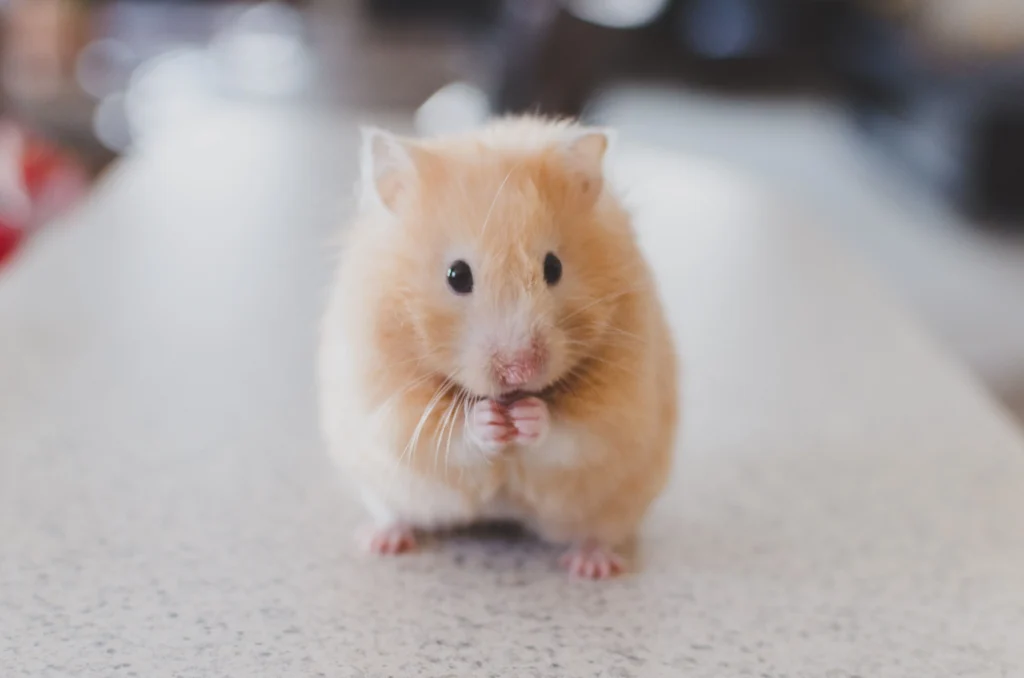
Suitable Hamster Food Options and Serving Sizes
When it comes to feeding your hamster, it’s essential to choose the right food options and provide them in appropriate serving sizes. A well-balanced diet is crucial for maintaining your hamster’s health and happiness. In this article, we will explore the most suitable hamster food options and the recommended serving sizes for each.
Commercial Hamster Food
Commercial hamster food is a convenient and balanced option for your pet’s diet. Look for high-quality brands that offer a mix of pellets, seeds, and dried vegetables. These pre-packaged foods are formulated to meet your hamster’s nutritional needs. Follow the serving size guidelines on the package, which typically recommend:
- 1-2 tablespoons of commercial food per day for adult hamsters
- Adjusting the amount based on your hamster’s age, size, and activity level
Fresh Vegetables
Fresh vegetables should be a part of your hamster’s daily diet, as they provide essential vitamins, minerals, and fiber. Some suitable options include:
- Leafy greens (e.g., lettuce, spinach, and kale)
- Carrots
- Cucumber
- Bell peppers
Offer a small handful of fresh vegetables per day, roughly the size of your hamster’s head. Introduce new vegetables gradually to avoid digestive upset.
Fruits
Fruits can be offered as occasional treats due to their high sugar content. Some hamster-friendly fruits include:
- Apples (without seeds)
- Berries (e.g., strawberries, blueberries, and raspberries)
- Melon (e.g., cantaloupe and watermelon)
Limit fruit servings to 1-2 small pieces per week, and always remove any uneaten fruit from the cage to prevent spoilage.
Protein Sources
In addition to commercial food, hamsters require protein sources to maintain muscle mass and support overall health. Some suitable options include:
- Cooked egg whites (1/4 to 1/2 teaspoon per week)
- Mealworms (1-2 per week as treats)
- Small amounts of cooked, lean meats (e.g., chicken or turkey, 1/4 to 1/2 teaspoon per week)
Treats and Supplements
Treats and supplements can be offered in moderation to add variety to your hamster’s diet. Some options include:
- Nuts and seeds (e.g., sunflower seeds, pumpkin seeds, and almonds) – limit to 1-2 per day
- Whole grains (e.g., cooked brown rice, oats, and barley) – 1/2 to 1 teaspoon per day
- Hamster-specific vitamin supplements – follow the recommended dosage on the package
Remember, treats should make up no more than 10% of your hamster’s total daily food intake.
By providing your hamster with a balanced diet consisting of suitable food options in appropriate serving sizes, you can ensure that your furry friend receives the nutrients needed for a healthy and active life. Always monitor your hamster’s weight and adjust food portions accordingly to maintain a healthy body condition.
Foods to Avoid Feeding Your Hamster
As a responsible hamster owner, it’s crucial to know which foods are safe for your furry friend and which ones should be avoided. Feeding your hamster the wrong foods can lead to various health problems, ranging from digestive issues to more severe conditions. In this article, we’ll discuss the foods you should never feed your hamster and why they can be harmful.
Citrus Fruits
Citrus fruits, such as oranges, lemons, limes, and grapefruits, are highly acidic and can cause digestive problems for your hamster. The high acidity can lead to stomach upset, diarrhea, and even mouth sores. It’s best to avoid feeding your hamster any citrus fruits to prevent these issues.
Onions and Garlic
Onions and garlic belong to the Allium family and contain compounds that can be toxic to hamsters. Consuming these foods can cause digestive problems, such as stomach pain and gas, and may even lead to a condition called hemolytic anemia, which affects the hamster’s red blood cells. To keep your hamster safe, avoid feeding them any onions or garlic.
Chocolate and Caffeine
Chocolate and caffeine are both toxic to hamsters and should be strictly avoided. Theobromine, a compound found in chocolate, can cause heart problems, seizures, and even death in hamsters. Caffeine, found in coffee, tea, and some sodas, can also be harmful, leading to restlessness, rapid heartbeat, and other health issues.
Junk Food and Processed Snacks
Junk food and processed snacks, such as chips, cookies, and crackers, are high in fat, sugar, and salt, which can be detrimental to your hamster’s health. These foods can lead to obesity, diabetes, and other chronic health problems. Stick to a balanced diet consisting of high-quality hamster food, fresh vegetables, and occasional healthy treats.
Raw Beans and Potatoes
Raw beans and potatoes contain harmful compounds that can be toxic to hamsters. Raw beans, particularly kidney beans, contain lectins that can cause digestive problems and even lead to death if consumed in large amounts. Raw potatoes contain solanine, a toxic compound that can cause digestive issues and neurological problems. Always cook beans and potatoes thoroughly before feeding them to your hamster, and only offer them in small amounts as occasional treats.
Sugary Foods and Drinks
Sugary foods and drinks, such as candy, soda, and fruit juices, should be avoided in your hamster’s diet. Excessive sugar consumption can lead to obesity, diabetes, and dental problems. Stick to providing fresh water as your hamster’s primary source of hydration and offer small pieces of fresh fruit as occasional treats instead of sugary snacks.
By avoiding these harmful foods and focusing on providing a balanced diet tailored to your hamster’s needs, you can help ensure your pet stays healthy and happy. If you have any concerns about your hamster’s diet or health, always consult with a veterinarian specializing in small animal care for expert advice and guidance.
Providing Fresh Water and Maintaining a Healthy Eating Schedule
Ensuring your hamster has access to clean, fresh water and maintains a healthy eating schedule is essential for their overall well-being. In this article, we’ll discuss the importance of providing fresh water and how to establish and maintain a healthy eating schedule for your furry friend.
The Importance of Fresh Water
Fresh, clean water is crucial for your hamster’s health. Hamsters require a constant supply of water to stay hydrated, regulate their body temperature, and support their digestive system. Without access to clean water, hamsters can quickly become dehydrated, leading to serious health problems.
To ensure your hamster always has access to fresh water, follow these tips:
- Provide a water bottle with a sipper tube attached to your hamster’s cage
- Check the water bottle daily to ensure it’s functioning properly and refill it with fresh water
- Clean the water bottle and sipper tube weekly to prevent the buildup of bacteria and algae
- Consider offering a small water dish in addition to the water bottle, as some hamsters prefer to drink from a bowl
Establishing a Healthy Eating Schedule
Hamsters have specific dietary requirements and should be fed a balanced diet consisting of high-quality hamster food, fresh vegetables, and occasional treats. Establishing a consistent feeding schedule helps regulate your hamster’s digestion and prevents overeating or food hoarding.
Follow these guidelines to maintain a healthy eating schedule for your hamster:
- Feed your hamster once or twice daily, preferably in the evening when they are most active
- Offer a tablespoon of high-quality hamster food per day, adjusting the amount based on your hamster’s age, size, and activity level
- Supplement the commercial food with a small handful of fresh vegetables daily
- Offer treats sparingly, limiting them to 1-2 pieces per week to prevent obesity and digestive issues
- Remove any uneaten fresh food from the cage after 24 hours to prevent spoilage
Monitoring Your Hamster’s Eating Habits
Observing your hamster’s eating habits can help you identify any potential health problems early on. Here are some signs to watch for:
- Sudden changes in appetite, such as a decreased interest in food or overeating
- Diarrhea or constipation, which may indicate a dietary imbalance or underlying health issue
- Excessive weight gain or loss, which can be a sign of an inappropriate diet or a medical problem
If you notice any of these signs, consult with a veterinarian specializing in small animals for guidance on adjusting your hamster’s diet and addressing any potential health concerns.
Conclusion
Providing your hamster with a constant supply of fresh, clean water and maintaining a balanced, consistent eating schedule are essential aspects of responsible hamster care. By following these guidelines and monitoring your hamster’s eating habits, you can help ensure your furry friend stays healthy, happy, and thriving.
